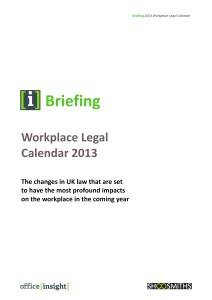January 31, 2013
New York state of mind to increase building energy efficiency by 20percent

In one of the most ambitious green initiatives in the United States, New York Governor Andrew Cuomo has issued an Executive Order directing state agencies to increase energy efficiency in state buildings by 20 percent in seven years. He also announced Build Smart NY, a plan to strategically implement the Executive Order by accelerating priority improvements in energy performance. The largest and most inefficient buildings will be addressed first and undergo comprehensive whole-building improvements, including new lighting fixtures and controls, heating, ventilating and air-conditioning systems and automated energy management systems. (more…)









 The changing nature of work and the workforce continues to transform offices around the world. And nowhere more so than in the United States According to a
The changing nature of work and the workforce continues to transform offices around the world. And nowhere more so than in the United States According to a 



 When it comes to the development of meaningful and innovative approaches to the environment, companies are often way ahead of legislation and prepared to do far more than is expected of them by Governments. Best practice is lauded by the WWF in its Green Game changers initiative which has just launched a new report highlighting those organisations that have pushed the envelope on environmental thinking. The latest Green Game Changers Report can be viewed and downloaded here.
When it comes to the development of meaningful and innovative approaches to the environment, companies are often way ahead of legislation and prepared to do far more than is expected of them by Governments. Best practice is lauded by the WWF in its Green Game changers initiative which has just launched a new report highlighting those organisations that have pushed the envelope on environmental thinking. The latest Green Game Changers Report can be viewed and downloaded here. 








January 24, 2013
Yes, very nice, but who do you think is going to clean it?
by Mark Eltringham • Architecture, Comment, Facilities management, Workplace design
(more…)